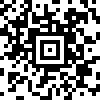I do. The is “el/la” and a is “un/una”.
In my dad’s language and my second language, it’s “the” and “a”
Icelandic has no word for “a.” A noun without a definite article suffix can be either “noun” or “a noun.” Then there is a suffix for definite article (epli “apple” -> eplið “the apple”). There is also a slightly more obscure hinn/hin/hið which can mean “the” as a separate word, but that’s not really used in most situations.
Yes, it’s “le/la” and “un/une” in French

Yes.
English.
I’ve heard of that one. I think the is “the” and a is “a”.
Also sometimes “an”.
Truly a terrible language.
I believe that “a” is either “a” or “an”; it depends.
Yes, we do.
“Il/lo/la/i/gli/le” instead of “the”, the precise article is chosen taking in consideration gender and plurality. We even have elliptic forms with " l’ ," for words starting with a vowel.
Then we have “un/uno/una” instead of “a”. Again elliptic form "un’ " for feminine words starting with a vowel.
Italian here 🤌
In german we have der/die/das for the and ein/eine for a.
And also completely unhinged declensions for them… Really, WTF Germany? 😭
Don’t tell them about the noun cases though
hungarian.
- “the” is “a” or “az” (the word “that” is also “az”)
- “a” is “egy” (the word “one” is also “egy”)
i think this might be because articles are relatively new in the language.
Yes. In danish either “en” or “et” goes in front of nouns like this: “en kat” and “et hus”. This is equal to “a cat” and “a house”.
If it’s in specific, it goes at the end of the word instead like this: “katten” and “huset”. This is equal to “the cat” and “the house”.
No (Lithuanian)
russian, nope!
People have covered German and French. Esperanto has the genderless “la” for “the”; there is no “a” article. “Here is a house” is “Ĉi tie estas domo,” or “Jen estas domo,” or even simply “Estas domo” depending on what you mean. But there’s no article.
Si exista en Español y inglés, son artículos definidos ( el, la, los, las ) y artículos indefinidos ( un, una, unos, unas )
Yes, they exist in Spanish and English, as indefinite articles ( a, an ) and definite articles, which English has one ( the )
Japanese does not to my knowledge have any articles, これは何 could mean what is this or what are these. りんご could be one or more apples.
idk
No we don’t (Slovak)
In German we have three genders for words, neutral, female and male. These are spread around pretty randomly:
Die Tür / The Door is female Das Auto /The Car is neutral Der Bus /The Bus is male
We also have ‘ein’ which is the equivalent of “a” in english. Ein Auto / A Car.
The difference is the same as in german, one is specific, the other more general.
Print(“the”)













